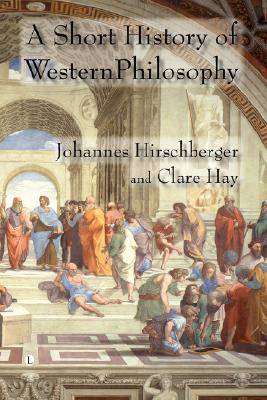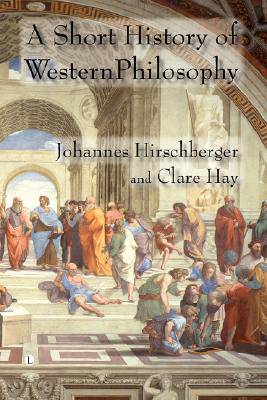
- Afhalen na 1 uur in een winkel met voorraad
- Gratis thuislevering in België vanaf € 30
- Ruim aanbod met 7 miljoen producten
- Afhalen na 1 uur in een winkel met voorraad
- Gratis thuislevering in België vanaf € 30
- Ruim aanbod met 7 miljoen producten
Zoeken
Omschrijving
First published in English in 1976, Hirschberger's A Short History of Western Philosophy is a condensed history of philosophy from the Pre-Socratics through to the 1960s. This new edition follows the division of the original text into four parts: AncientPhilosophy, Medieval Philosophy, Modern Philosophy (17th and 18th century), and 19th and 20th century Philosophy. The new version contains a new preface and introduction, and a new fifth part on Analytical Philosophy in the 19th and 20th century period by the editor Clare Hay. Hirschberger writes from a moral/theological perspective and dismisses Analytical Philosophy as failing to cast light on the human condition. Clare Hay helps the reader to further analyse Hirschberger's writings and highlights the importance of Analytical Philosophy as the starting point for the development of computing and artificial intelligence. Artificial Intelligence has opened new lines of thought and raised new moral questions still to be discussed in this so-called non-ideological age.
Specificaties
Betrokkenen
- Auteur(s):
- Uitgeverij:
Inhoud
- Aantal bladzijden:
- 250
- Taal:
- Engels
Eigenschappen
- Productcode (EAN):
- 9780718830922
- Verschijningsdatum:
- 29/05/2008
- Uitvoering:
- Paperback
- Formaat:
- Trade paperback (VS)
- Afmetingen:
- 154 mm x 240 mm
- Gewicht:
- 381 g

Alleen bij Standaard Boekhandel
+ 73 punten op je klantenkaart van Standaard Boekhandel
Beoordelingen
We publiceren alleen reviews die voldoen aan de voorwaarden voor reviews. Bekijk onze voorwaarden voor reviews.











